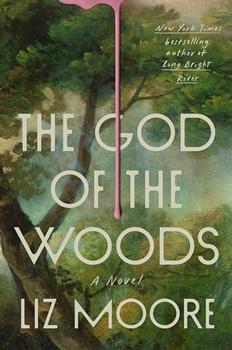Summary | Excerpt | Reviews | Readalikes | Genres & Themes | Author Bio

The Surprising Secrets of America's Wealthy
by Thomas J. Stanley, William D. Danko, Ph.D.
We have an average household net worth of $3.7 million. Of course, some of our cohorts
have accumulated much more. Nearly 6 percent have a net worth of over $10 million. Again,
these people skew our average upward. The typical (median, or 50th percentile) millionaire
household has a net worth of $1.6 million.
On average, our total annual realized income is less than 7 percent of our wealth. In
other words, we live on less than 7 percent of our wealth.
Most of us (97 percent) are homeowners. We live in homes currently valued at an average
of $320,000. About half of us have occupied the same home for more than twenty years.
Thus, we have enjoyed significant increases in the value of our homes.
Most of us have never felt at a disadvantage because we did not receive any
inheritance. About 80 percent of us are first-generation affluent.
We live well below our means. We wear inexpensive suits and drive American-made cars.
Only a minority of us drive the current-model-year automobile. Only a minority ever lease
our motor vehicles.
Most of our wives are planners and meticulous budgeters. In fact, only 18 percent of us
disagreed with the statement "Charity begins at home." Most of us will tell you
that our wives are a lot more conservative with money than we are.
We have a "go-to-hell fund." In other words, we have accumulated enough
wealth to live without working for ten or more years. Thus, those of us with a net worth
of $1.6 million could live comfortably for more than twelve years. Actually, we could live
longer than that, since we save at least 15 percent of our earned income.
We have more than six and one-half times the level of wealth of our non-millionaire
neighbors, but, in our neighborhood, these non-millionaires outnumber us better than three
to one. Could it be that they have chosen to trade wealth for acquiring high-status
material possessions?
As a group, we are fairly well educated. Only about one in five are not college
graduates. Many of us hold advanced degrees. Eighteen percent have master's degrees, 8
percent law degrees, 6 percent medical degrees, and 6 percent Ph.D.s.
Only 17 percent of us or our spouses ever attended a private elementary or private high
school. But 55 percent of our children are currently attending or have attended private
schools.
As a group, we believe that education is extremely important for ourselves, our
children, and our grandchildren. We spend heavily for the educations of our offspring.
About two-thirds of us work between forty-five and fifty-five hours per week.
We are fastidious investors. On average, we invest nearly 20 percent of our household
realized income each year. Most of us invest at least 15 percent. Seventy-nine percent of
us have at least one account with a brokerage company. But we make our own investment
decisions.
We hold nearly 20 percent of our household's wealth in transaction securities such as
publicly traded stocks and mutual funds. But we rarely sell our equity investments. We
hold even more in our pension plans. On average, 21 percent of our household's wealth is
in our private businesses.
As a group, we feel that our daughters are financially handicapped in comparison to our
sons. Men seem to make much more money even within the same occupational categories. That
is why most of us would not hesitate to share some of our wealth with our daughters. Our
sons, and men in general, have the deck of economic cards stacked in their favor. They
should not need subsidies from their parents.
What would be the ideal occupations for our sons and daughters? There are about 3.5
millionaire households like ours. Our numbers are growing much faster than the general
population. Our kids should consider providing affluent people with some valuable service.
Overall, our most trusted financial advisors are our accountants. Our attorneys are also
very important. So we recommend accounting and law to our children. Tax advisors and
estate-planning experts will be in big demand over the next fifteen years.
Copyright © 1996 by Thomas J. Stanley and William D. Danko.




Your guide toexceptional books
BookBrowse seeks out and recommends the best in contemporary fiction and nonfiction—books that not only engage and entertain but also deepen our understanding of ourselves and the world around us.